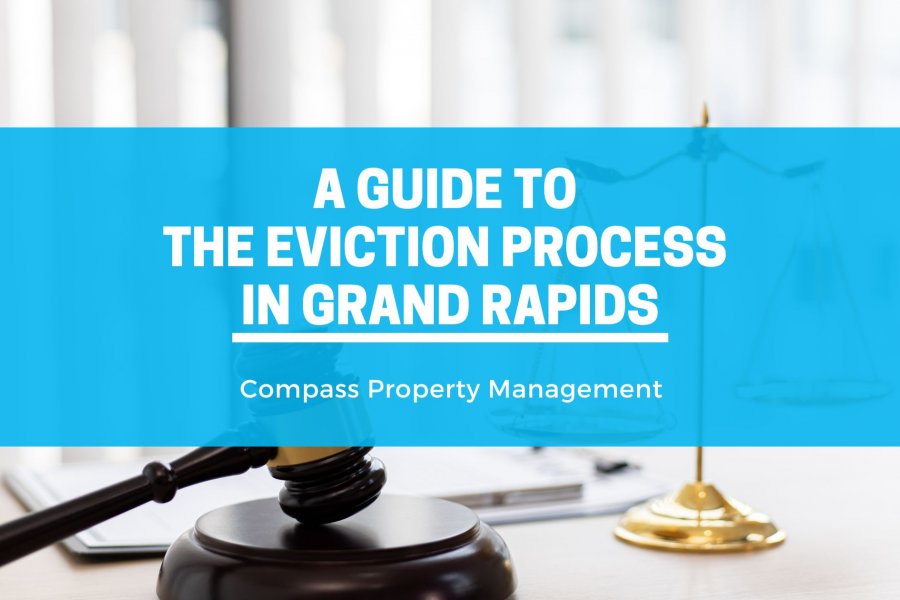
Michigan is a suburban state in the Midwest that offers great real estate investment opportunities. It’s a wonderful place with beautiful scenery and a lot of recreational activities for its residents and visitors. With its relatively low cost of living, affordable housing, and unique lakefront properties, Michigan offers a good quality of life that makes it a desirable place to live in.
With its growing population, the demand for Michigan real estate is also increasing. This is one reason why Michigan is a great place for investors planning to venture into rental properties. Being a landlord in Michigan can be a great way to earn a lucrative income and there are plenty of opportunities to purchase rental properties in the Great Lake State.
To become a successful landlord in Michigan, you need to know how to screen your residents carefully. Failing to do so may land you with residents who will cause more problems than profits for your rental property, like refusing to pay rent. Keep in mind, however, that no matter how careful you are in choosing residents for your rental property, sometimes, things could happen that lead residents to break the law and violate the written lease agreement.
When this happens, you will be left with no other choice but to evict a resident. If this happens, you need to be familiar with the proper eviction process. Either the resident leaves the premises of their own volition or an eviction process ensues.

Michigan Eviction Process: A Guide
In Michigan, evicting someone from a rental property can take between two weeks and two months. The length of the eviction process in Michigan will depend on the reason for eviction, and whether or not the resident chooses to file an appeal. Filing fees may apply when trying to evict a resident.
Notice Period for Lease Termination with Legal Cause
Landlords cannot evict a resident without a legal cause. The landlord must provide renters with proper written notice via first class mail or personal service before terminating the lease. The legal notice period required will depend on the grounds for eviction.
Here are the legal grounds for evictions with their corresponding Michigan eviction notice requirements. This is all part of a legal notice:
1. Nonpayment of Rent
In the state of Michigan, rent is considered late the day immediately after its due date. A landlord can begin the eviction process for nonpayment of rent by serving a [7-day notice] to quit or pay rent (also referred to as a demand for possession). A written notice to quit or demand for possession must be either followed through to eviction or be remedied by the resident when they pay the amount of rent that is overdue.
2. No Lease or End of Lease
If a resident stays at the property without a lease or even after the lease has ended, the landlord must first terminate the tenancy by serving a proper eviction notice to move out.

For month-to-month leases, the landlord should give the resident 30 days’ notice. For weekly leases, a 7 days' notice is required. After this notice period ends, the landlord may proceed with filing an eviction lawsuit if the resident remains at the property. A notice to quit is the first step in an eviction process.
3. Violation of Lease or Responsibilities
If a resident fails to uphold their responsibilities under Michigan landlord-tenant law, the landlord must give them 30 days’ notice to vacate the premises before filing an eviction case. Landlords are not required to give them a chance to fix the lease violations within those 30 days.
4. Material Health and Safety Violations
A Michigan landlord can evict residents who violate health and safety rules. For example, they let trash pile up inside the property, damage the electrical wiring, and fail to clean the property sufficiently. If a resident causes a serious health hazard or property damage, they must be given 7 days’ notice to vacate the property without a chance to fix the issue.
5. Illegal Activity
Unlike nonpayment of rent, illegal activities don’t warrant a chance to fix the issue. If a resident has threatened or has caused physical injury to others in the rental unit, the landlord must provide a 7 days’ notice to vacate before filing an eviction lawsuit. If residents are involved in illegal drug activity, only [24 hours’ notice] is required).

Resident Eviction Defenses in Michigan
The defense is a reason why the petitioner shouldn’t win the case. Michigan eviction laws state that illegal evictions include:
- Self-help eviction, where the landlord forcibly removes a resident by changing the locks, shutting off utilities, and removing renters’ belongings.
- Retaliatory eviction in response to residents who practice their legal right against the landlord.
The landlord could be required to pay up to three times the amount of the actual damages sustained if found guilty.
Attending Court Hearing in Michigan
Local district court hearings will typically be held within five and 10 days after the summons and complaint are served to the renter. Whatever the case, a court date will be issued. In Michigan, residents are not required to file a written answer to attend the eviction hearing and object to the eviction in court. If the resident doesn’t attend the hearing, the court may issue a judgment in favor of the landlord.
Writ of Restitution
The writ of restitution is the resident’s final notice to vacate the property. After the court hearing has made a judgment in favor of the landlord, the writ will be issued 10 days after the judgment date is issued.
Within 10 days before the writ is issued, the resident may still file an appeal to the court. However, if the eviction is due to illegal drug activity or material health or safety violations, the writ may be issued immediately.

The Eviction
The order of eviction or writ of restitution must be executed by law enforcement within 56 days of being issued by the court. However, Michigan law does not specify how soon the writ will be executed. It’s best to check with the city or county where the property is located to see if there are guidelines on how quickly the writ of restitution will be executed.
If the resident will not vacate the premises, you can file a formal police report in order to have the resident removed. If a resident violates the eviction order, you can't remove them yourself, but the police can. If a landlord fails to follow through with this procedure, the resident may try to stay indefinitely, so it's best to deal with it immediately with law enforcement officers instead of dealing with filing fees and the like.
A landlord cannot forcibly remove a resident's belongings, so this all may constitute legal advice. When you evict residents with a court order, it can go smoothly, and you needn't worry as long as you follow the law.
Conclusion
Dealing with problematic residents can cause a lot of stress and monetary losses. Eviction may be the last resort, but if you notice issues with your residents, make sure to take appropriate disciplinary actions right away to prevent the issue from recurring or getting out of hand.
If you have specific questions about Michigan landlord-tenant law, you may also want to seek help from a knowledgeable property management company in Michigan. Compass Property Management is a full-service property management company serving Grand Rapids and the surrounding area.
Disclaimer: This blog should not be used as a substitute for legal advice from a licensed attorney in your state. Laws change, and this post might not be updated at the time of your reading. Please contact us for any questions you have in regards to this content or any other aspect of your property management needs.
